In Filipino culture, team building is a valued tradition for promoting unity and camaraderie. In some organizations, it involves activities like inuman (drinking sessions), swimming, and kwentuhan (storytelling) during outings with colleagues. While these activities are enjoyable, true team building includes much more than social gatherings. It’s about creating high-performing teams, building camaraderie, improving communication, promoting teamwork, encouraging growth, and aligning goals. Let’s explore the deeper meaning of team building in Filipino culture and its positive impact on organizations while addressing the Five Dysfunctions of a Team by Patrick Lencioni.
1. Building High-Performing Teams: Striving for Excellence
Filipinos have a strong drive for excellence. Team building helps create teams that perform well and contribute to the organization’s success. Instead of focusing on activities like inuman or swimming, team building should encourage growth, innovation, and pushing boundaries. By setting ambitious goals and providing opportunities for skill development, teams can achieve great results.
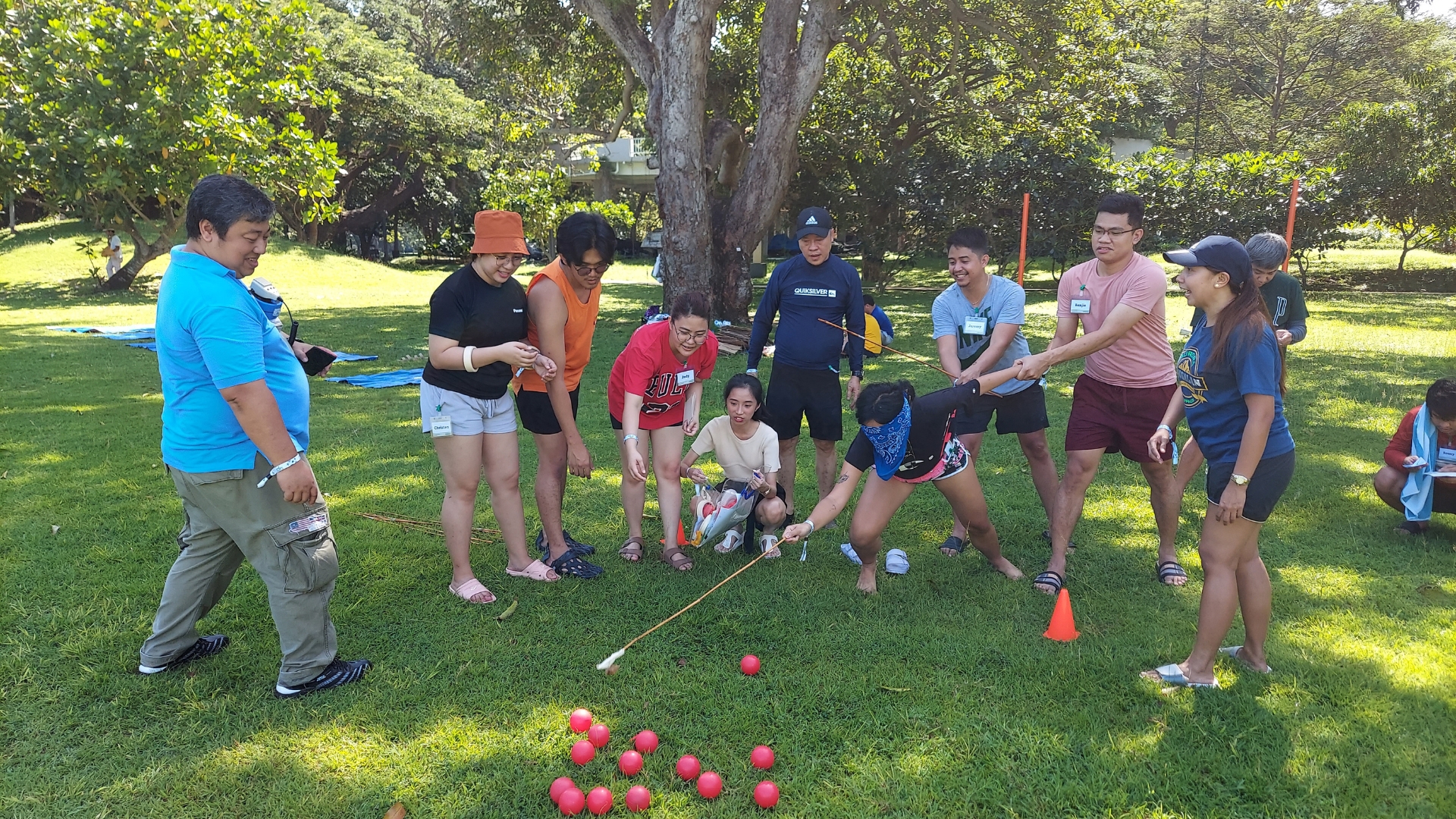
Addressing Dysfunction 1: Absence of Trust
High-performing teams are built on trust. Trust is developed when team members are open and honest with each other. Trust-building exercises and open communication can help foster this trust, ensuring every member feels safe sharing ideas and concerns.
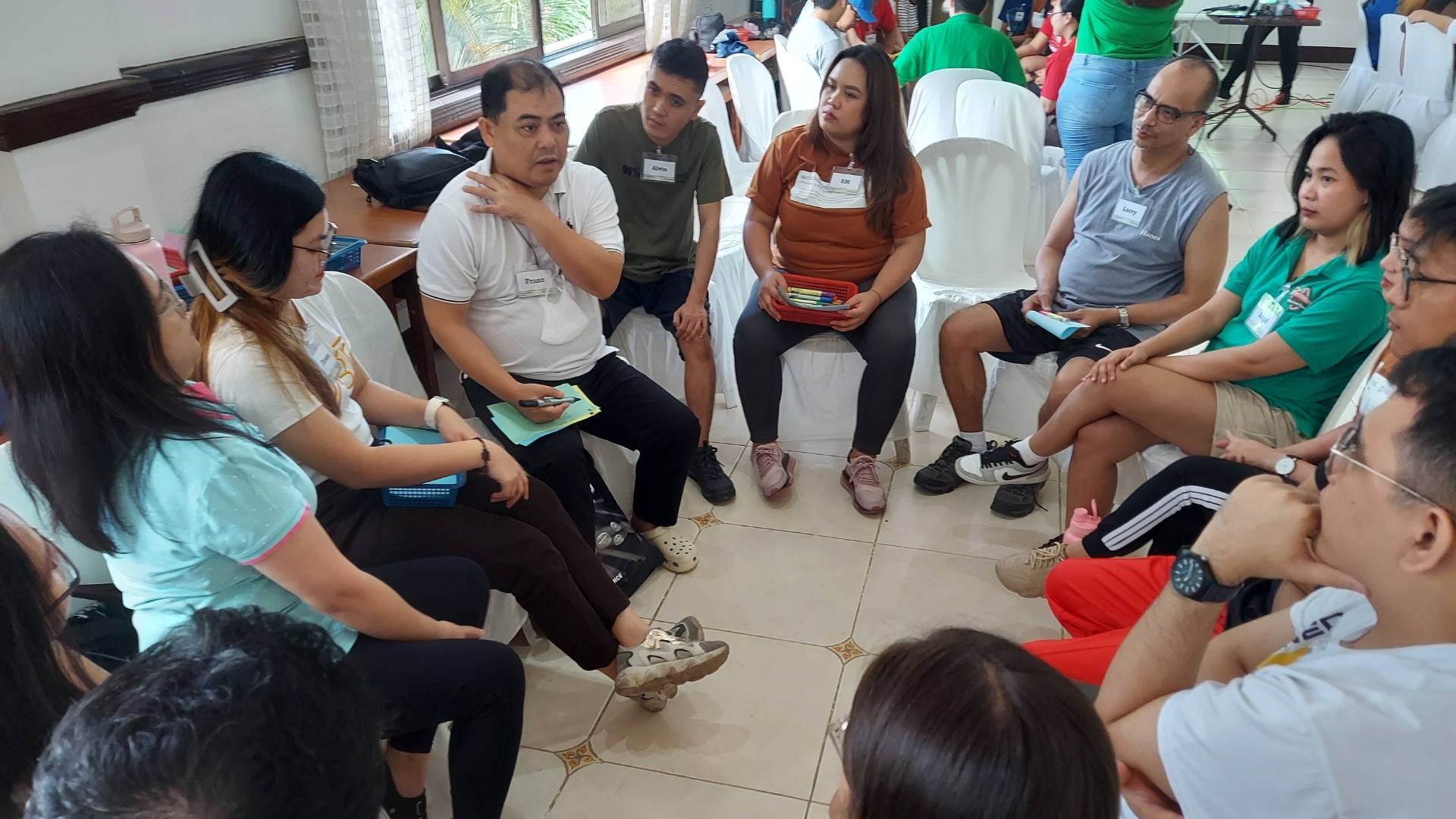
2. Developing Camaraderie: Strengthening Bonds
While inuman and kwentuhan can build camaraderie, true connections are made through shared experiences and mutual respect. Team building should create opportunities for meaningful interactions beyond casual conversations. Activities like team challenges, workshops, or community service projects deepen bonds among team members. When colleagues develop a strong camaraderie, they become a supportive unit that faces challenges and celebrates successes.
Addressing Dysfunction 2: Fear of Conflict
Encouraging healthy debate and open discussion helps overcome the fear of conflict. Team-building exercises that promote honest conversation and constructive feedback can strengthen relationships.
3. Emphasizing Communication: The Key to Success
Effective communication is crucial for any successful team. In Filipino culture, kwentuhan reflects our love for storytelling and sharing experiences. Team building should highlight the importance of open, honest, and respectful communication. Through workshops, role-playing exercises, or team-building games, teams can improve their communication skills and create a culture of transparency and collaboration. Clear communication ensures everyone is on the same page and working towards common goals.
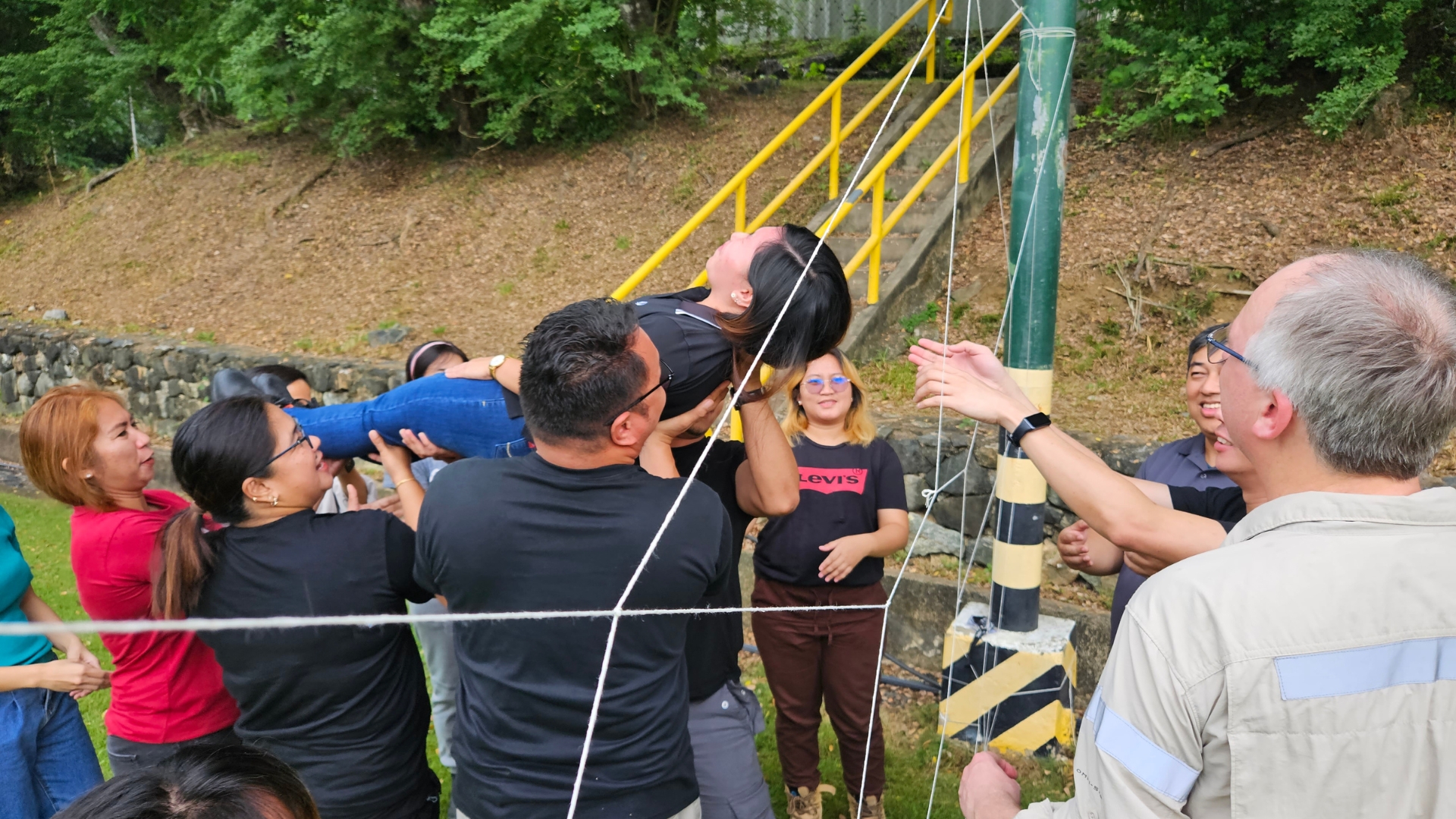
Addressing Dysfunction 3: Lack of Commitment
Clear and open communication ensures all team members are heard and aligned with the team’s decisions, fostering commitment. Activities that require collective decision-making and goal-setting can enhance commitment.
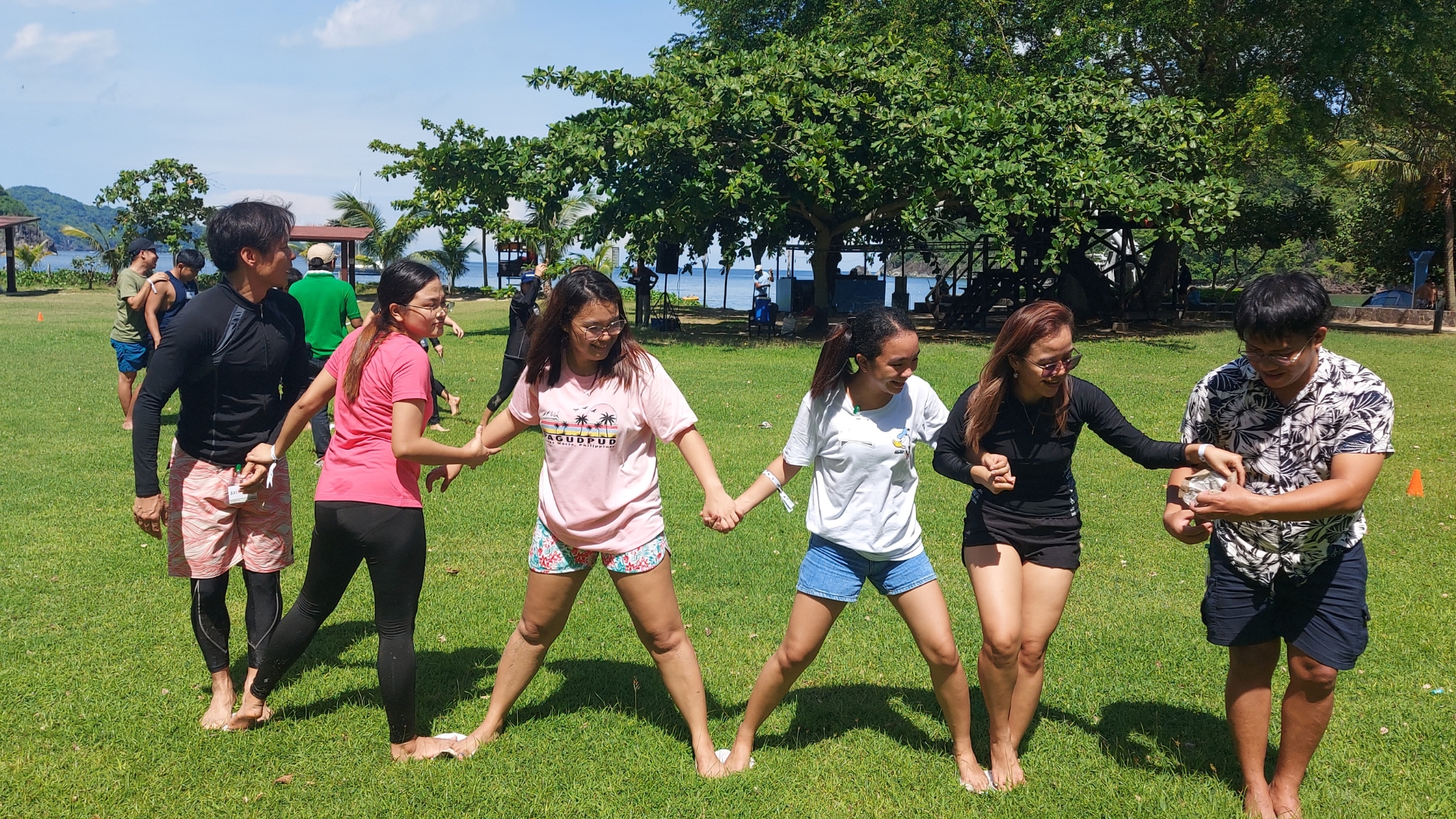
4. Promoting Collaboration: Harnessing Collective Strengths
In Filipino culture, the spirit of Bayanihan emphasizes the power of collaboration and collective effort. Team-building activities should encourage collaboration by providing opportunities for teamwork, problem-solving, and creative brainstorming. Rather than just engaging in recreational activities like swimming, teams can participate in group challenges or collaborative projects. By leveraging each other’s strengths and expertise, teams can achieve greater results and overcome obstacles together.
Addressing Dysfunction 4: Avoidance of Accountability
Promoting collaboration involves holding each other accountable for the team’s goals and standards. Team-building exercises that require joint responsibility and peer evaluation can foster a culture of accountability.
5. Recognizing Team Development: Nurturing Growth
Team building is an ongoing process of growth and development. Filipino organizations should invest in activities that promote continuous learning and skill development. Workshops, training sessions, or mentoring programs empower team members to develop new skills and advance their careers. Recognizing individual and team achievements fosters a culture of growth and motivates team members to strive for excellence.
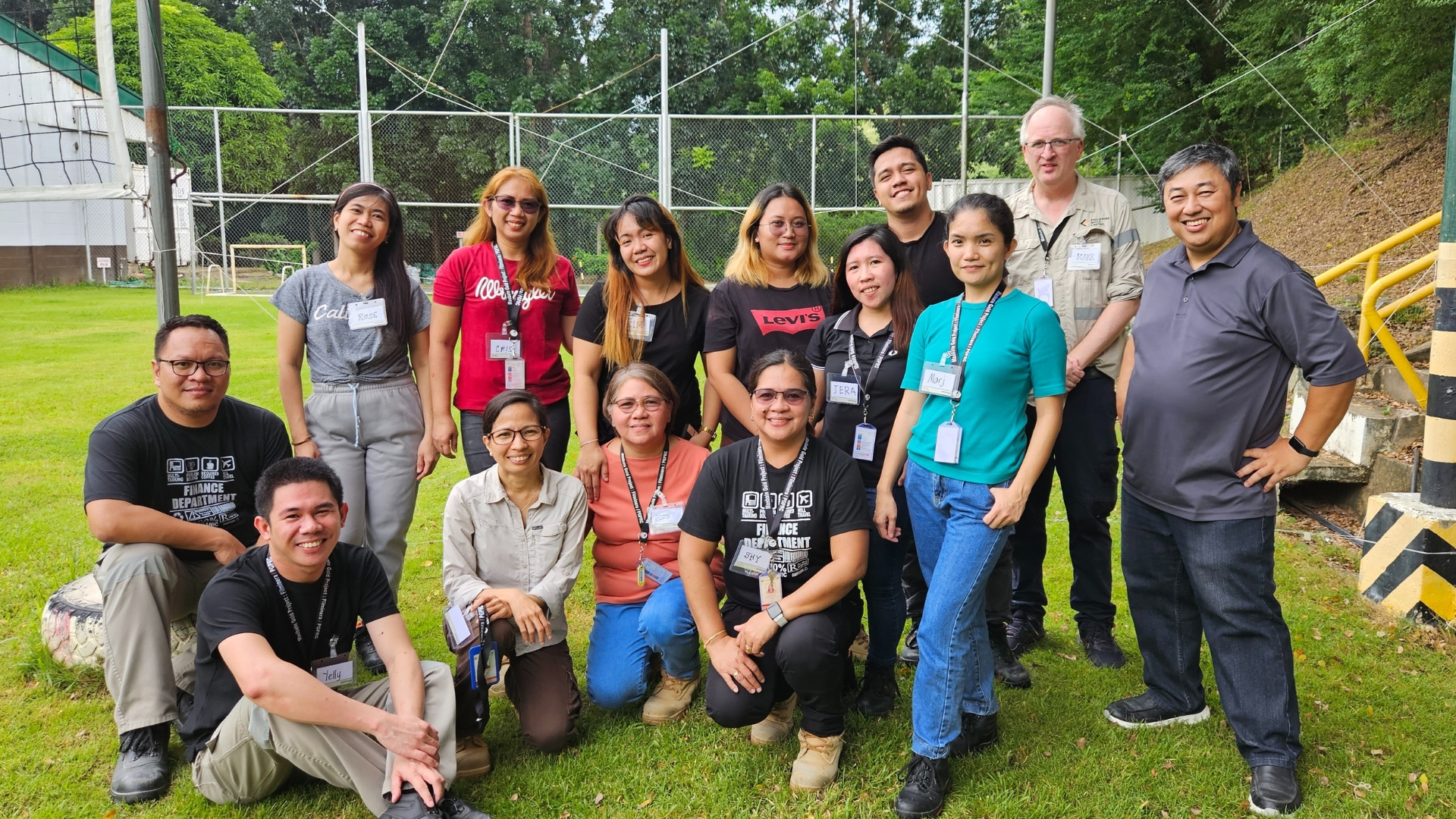
Addressing Dysfunction 5: Inattention to Results
By focusing on team development and recognizing achievements, teams can ensure that individual and collective efforts are aligned with the organization’s goals. Emphasizing results-oriented activities helps keep the team focused on achieving success.
For a team to succeed, everyone must be aligned toward a shared vision and goals. Team building activities should reinforce the organization’s mission and values, ensuring that every member understands their role in achieving collective success. Strategic planning sessions, goal-setting workshops, or visioning exercises help align individual aspirations with organizational objectives. When everyone is working towards a common purpose, teams are more focused, motivated, and effective.

Holistic team building brings transformative benefits to organizations. It empowers teams to reach their full potential and achieve extraordinary results. By fostering a culture of excellence and continuous improvement, teams become more agile, innovative, and resilient. Deeper connections forged through meaningful interactions create a supportive and cohesive team environment. Team members trust each other, communicate openly, and collaborate effectively towards common goals. Effective communication fosters clarity, transparency, and alignment within the team. Teams are better equipped to navigate challenges, resolve conflicts, and make informed decisions. Promoting collaboration harnesses the collective strengths and talents of team members. By working together towards common objectives, teams achieve greater synergy and drive organizational success. Investing in team development ensures that skills are honed, talents are nurtured, and individuals thrive. Teams embrace a culture of learning and innovation, continuously evolving to meet the demands of a dynamic environment.
As we start a new chapter in team building in Filipino culture, let’s go beyond the usual inuman and swimming. Let’s focus on creating strong teams, building close bonds, encouraging open communication, working together, recognizing growth, and aligning our goals. By doing this, Filipino organizations can achieve excellence and success together. Let’s make team building a way to grow, change, and achieve great things as a team.
Check out ExeQserve’s customizable team-building program to start transforming your team’s potential today!
About the Author
Paolo Kier Ablaza is ExeQserve’s dedicated Training Coordinator, committed to delivering high-quality and enjoyable training sessions. He supports the training facilitator, ensuring that learners acquire valuable skills in a fun and engaging environment. An aspiring trainer, Paolo’s passion and meticulous attention to detail make him an invaluable asset to the ExeQserve team.









